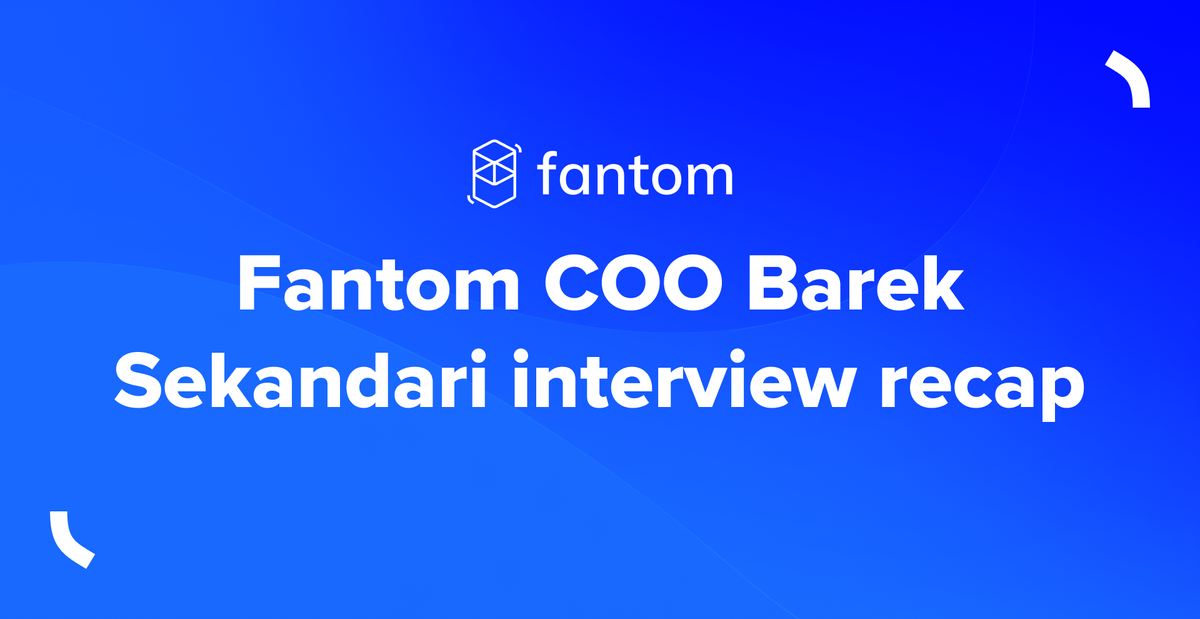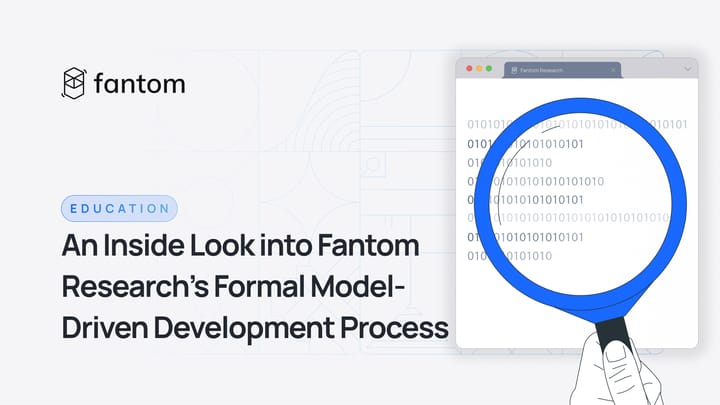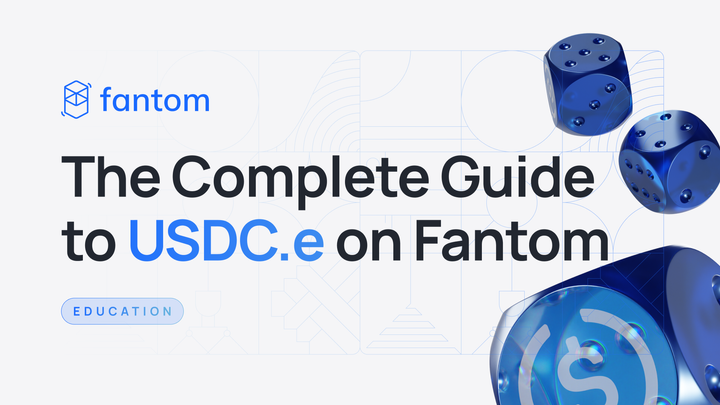Fantom COO Barek Sekandari interview recap

On July 26, 2021, FTM Alerts invited Fantom COO Barek Sekandari for a one-on-one interview.
Here's a summary of Barek's first-ever AMA, in which he offers an insider's look at Fantom's global expansion on the enterprise and government side.
- In April this year, you were named Chief Operating Officer of the Fantom Foundation. What was your role before that, and have your day-to-day duties changed at all?
- How is the Fantom Foundation working to reflect enterprise usage on the public Fantom blockchain in terms of volume data, transaction data, and hopefully, the consequent possible effect that might have on price?
- So, how does using Fantom increase transparency?
- How would CBDCs affect the price of Fantom, and is Fantom in talks with the United Arab Emirates about CBDCs?
- Are you building any relationships in Latin America, India, or elsewhere?
- In the previous interview, Sam mentioned that certain countries would be a lot more receptive to this technology than already established ones and doing things their way. Are you using Uzbekistan and Afghanistan as your proof of concept?
- Will there ever be a need for enterprise-specific validators, or will enterprise use the same validators that we all use?
- What is your (you specifically) primary focus right now? What do you feel like Fantom needs the most, or what can you share about what Fantom is pushing for right now?
- What did you do before Fantom that gave you this much access to governments, and what approach do you generally take when introducing Fantom?
- When you're approaching governments, what are the biggest hurdles that you have to overcome?
- Do you find that today, when you meet governments that you are running into younger people, who maybe have more of an idea of what cryptocurrency is all about?
- Are all government initiatives that you work on off-chain, or are some planned to be on-chain?
- What are you the most excited about for the future of Fantom?
- Was there anything that we didn't touch on that you wanted to speak about
1. In April this year, you were named Chief Operating Officer of the Fantom Foundation. What was your role before that, and have your day-to-day duties changed at all?
I got into this space in 2017, getting to know about Bitcoin. As I did my research, I saw a huge opening in the market, which was that many startups were being founded, many whitepapers being written, and in short, many promises being made, but no real mass adoption. This is how I founded SK Chain advisors, which is a consulting firm. We consulted with over 55 blockchain projects on the biz dev side and marketing, and even legal. I worked with Fusion, which is also a partner with Fantom, on exchange listings. Doing that, I met Andre, who asked me to join Fantom. That was back in April 2019.
I started as a consultant helping with listings, and as we launched the main net, I got involved on the government side of things. I was promoted to lead of the business development department, and from there, I worked in my current position. My work is now on the public-facing side. I started working on contracts in Afghanistan, then Pakistan, and Ukraine. Currently, we are working in Tajikistan, Uzbekistan, and other countries, which I cannot name.
2. How is the Fantom Foundation working to reflect enterprise usage on the public Fantom blockchain in terms of volume data, transaction data, and hopefully, the consequent possible effect on price?
On the enterprise side of things, we are quite early in terms of what we are doing with governments. But consider that the biggest clients in the world are always governments. Our goal is to solve real-world challenges that developing countries face, like transparency, corruption, and bureaucracy. We are working very hard with governments, and this will be reflected in multi-million dollar contracts.
3. So how does using Fantom increase transparency?
Anything you put on blockchain automatically brings a lot of transparency. Consider the work we have done in Afghanistan on counterfeit drugs. We have labeled 80,000 products, enabling regular consumers to scan products and determine if they are real or fake.
4. How would CBDCs affect the price of Fantom, and is Fantom in talks with the United Arab Emirates about CBDCs?
Let's look at the bigger picture and the question of solving real-world challenges. Digital currency is one of those challenges. Take Uzbekistan as an example. When I was there and tried to change British pounds or dollars to the local currency, I would be given a massive bundle of notes in SOM, the local currency. Imagine going to a restaurant and needing to pay 8 or 9 hundred thousand SOM for a meal. Most people there don't have credit or debit cards, and they can't access banking systems. With CBDC, governments can bring millions of people on board. Then regionally, with CBDC, you can enable cross-border payments. The impact on both populations and Fantom would be enormous. As for price, I cannot talk about that. But our goals are big.
5. Are you building any relationships in Latin America, India, or elsewhere?
Definitely. Our goal as an organization is to make sure we proceed step by step and don't overextend ourselves. It would be easy to expand, but we want to make sure that we do the job correctly rather than rushing and trying to do everything in one go, which would not be a good model. We have connections to proceed, but we're looking at one step at a time.
6. In the previous interview, Sam mentioned that certain countries would be a lot more receptive to this technology than already established ones and doing things their way. Are you using Uzbekistan and Afghanistan as your proof of concept?
It will take a long time for developed countries to change their systems because they don't face the same problems as developing countries. In developing countries, not everything is working as it should. This includes countries like India and Indonesia, which have big economies and a very big future.
If we can solve, let's say, 10% or 20% of their problems – and I'm being quite conservative with those kinds of numbers – I think that will already be fantastic. When we approach countries, we address what they are struggling with, providing them with the right solutions.
7. Will there ever be a need for enterprise-specific validators, or will enterprise use the same validators that we all use?
It does depend on the government's requirements, so if they (enterprise validators) were needed, of course, we would do it. We are quite flexible with them.
8. What is your (you specifically) primary focus right now? What do you feel like Fantom needs the most, or what can you share about what Fantom is pushing for right now?
What excites me is solving real-world challenges. It's a personal thing for me as I originally hail from Asia, so I know what the general public faces daily. My goal is to bring Fantom to those billions of people who do not have access to the technology and the opportunities it offers to change their lives and those of generations to come.
This can be done on multiple ends. Let's just take one example of education. In Asia, there's a massive problem of fake diplomas. People can literally pay a few bucks and come away with a fake diploma. This is challenging for the government and the public because it hurts real talent. Then there's the health side of things, supply chain, and CBDC. Many things keep me excited and motivate me. The team and I work every day to solve challenges and drive Fantom towards mainstream adoption. We are here for the long term. Actions matter to us.
9. What did you do before Fantom that gave you this much access to governments, and what approach do you generally take when introducing Fantom?
Before Fantom, as I mentioned earlier, I had my consulting firm. But I've been an entrepreneur all my life. I founded my first startup when I was only 17. It was an event management company in Asia, organizing private parties for government officials. I did that for a couple of years and then moved to the real estate industry and eventually to blockchain. Through past ventures and personal connections, I managed to form government connections.
10. When you're approaching governments, what are the biggest hurdles that you have to overcome?
When speaking to government entities, the biggest challenge is educating them and giving them a picture of the industry. The moment we mention cryptocurrency, the first idea that pops up for some is a Ponzi scheme. Educating them and telling them why they need blockchain is a hurdle when officials are not aware of what's happening in the industry. But once we do that, our success in getting the job done has been very high. Nowadays, it's much easier for us to convince partners to join us and be a part of this amazing movement.
11. Do you find that today, when you meet governments that you are running into younger people, who maybe have more of an idea of what cryptocurrency is all about?
Indeed, some people in top positions know about blockchain and are looking to implement it, but they don't know who the right partners are. So convincing them is much easier. The industry branding is much more positive now than it was a few years back.
12. Are all government initiatives that you work on off-chain, or are some planned to be on-chain?
It really does depend on the government requirements. I believe that there will be many projects on-chain, but there are also projects that might need to be off-chain, like those involving protected data. Governments might not want [data] to be out there in public for cyber-security or other reasons. It really does depend on the niche we are addressing. We prefer to be flexible and to help governments address their problems.
13. What are you the most excited about for the future of Fantom?
What makes me the most excited is the everyday work that I do. I'm going to retake the example of Afghanistan and the nationwide adoption we're looking for on the healthcare side. So many people die from fake drugs, and it's a major problem not only in Afghanistan but across Asia, in Russia… I've had my family members suffer from this. So how exciting would it be to help solve this problem and potentially save lives?
As you know, most people watching like you and myself - we're focused on this DeFi side of things, and we're looking at percentages. It's all about money, and we get caught up in that work. But then, there's a real-world that is helping to change lives, and that's where we want to go.
I think that the blockchain industry is bigger than market fluctuations and turning profits. If you want Fantom or even the blockchain industry to be the revolution we wanted it to be, then we need to be doing real things. By addressing even a small part of people's difficulty, we can effect a revolution.
Let's take one example of banking the unbanked. There are so many rural areas where people cannot have access to banks because the bank branch is two hours from their village. If we can bring CBDC, everyone has a bank account on their mobile. Just imagine giving people access to this advanced technology. I feel truly fortunate to be a part of Fantom and to have this opportunity to solve sad problems.
14. Was there anything that we didn't touch on that you wanted to speak about?
I'd just like to thank the Fantom community as a whole. You are amazing, and thank you, Austin, for hosting this AMA. I know that the community is occasionally frustrated (with a lack of news), and my suggestion is that everyone thinks long-term and maintains a belief in the project. Know that we are working seven days a week to make a difference.



